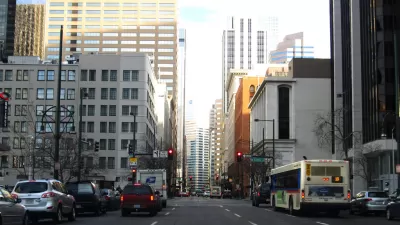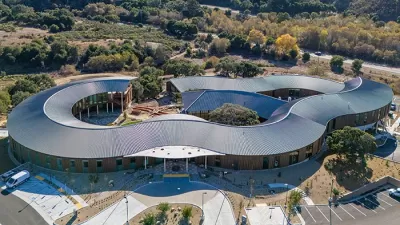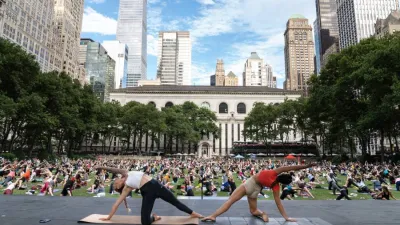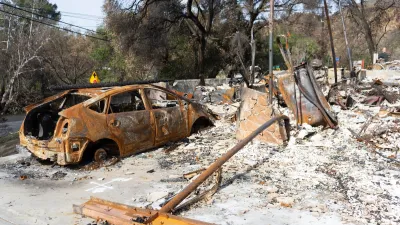A growing awareness of the link between the built environment and mental health has led some designers to examine the ways we can make housing feel more safe and welcoming for vulnerable populations.

In every aspect from transportation to housing, the COVID-19 pandemic laid bare massive inequalities in American society. While "[f]or many of us, the global lockdowns stemming from the COVID-19 pandemic have made our homes places of respite, healing, and renewal," writes Carl Winfield, many people with more complicated housing situations found themselves in even more dangerous positions. Meanwhile, housing conditions, particularly those found in shelters, can trigger difficult emotions for people who have experienced severe trauma.
"The growing awareness of the impact of the built environment on our health is one reason for the growth of trauma-informed design — design that includes adaptations to support a strengths-based framework based in an understanding of, and responsiveness to, the impact of trauma." According to Sandra Serna, vice-president health and housing at Stewards of Affordable Housing for the Future (SAHF), "[s]ubstandard housing — places that are overcrowded, dark, confining, poorly ventilated, or without access to social support — really highlight the negative impact poor-quality indoor environments can have on health." Now, experts are looking at ways to create spaces that "promote feelings of well-being and connection to the environment, that speak to the quality of life." While racial trauma manifests with many of the same symptoms as PTSD, "unlike PTSD, which is linked to a particular experience or series of experiences, racial trauma is marked by continuous direct and indirect exposure to race-based stress, which has a traumatic effect on society as a whole."
One example of a trauma-informed center is Denver's Arroyo Village, which uses trauma-informed design principles to create a safe, supportive space for clients. Shopworks Architecture, who designed the village, "began thinking about ways the built environment can be welcoming, feel safe, and help with the repair and healing of the brain and the prefrontal cortex." Their research led to considerations including the design of stairways to be more open and well-lit, the inclusion of green space and natural light, and other elements that "facilitate safety and belonging."
The work, says Serna, goes beyond just providing a safe, welcoming home for individuals. "The effort to connect residents and help form a larger, interrelated community beyond a particular development has led to the exploration of ways in which people can begin to address their trauma collectively and heal."
FULL STORY: What Is Trauma-Informed Design?

Maui's Vacation Rental Debate Turns Ugly
Verbal attacks, misinformation campaigns and fistfights plague a high-stakes debate to convert thousands of vacation rentals into long-term housing.

Planetizen Federal Action Tracker
A weekly monitor of how Trump’s orders and actions are impacting planners and planning in America.

Chicago’s Ghost Rails
Just beneath the surface of the modern city lie the remnants of its expansive early 20th-century streetcar system.

Bend, Oregon Zoning Reforms Prioritize Small-Scale Housing
The city altered its zoning code to allow multi-family housing and eliminated parking mandates citywide.

Amtrak Cutting Jobs, Funding to High-Speed Rail
The agency plans to cut 10 percent of its workforce and has confirmed it will not fund new high-speed rail projects.

LA Denies Basic Services to Unhoused Residents
The city has repeatedly failed to respond to requests for trash pickup at encampment sites, and eliminated a program that provided mobile showers and toilets.
Urban Design for Planners 1: Software Tools
This six-course series explores essential urban design concepts using open source software and equips planners with the tools they need to participate fully in the urban design process.
Planning for Universal Design
Learn the tools for implementing Universal Design in planning regulations.
planning NEXT
Appalachian Highlands Housing Partners
Mpact (founded as Rail~Volution)
City of Camden Redevelopment Agency
City of Astoria
City of Portland
City of Laramie





























